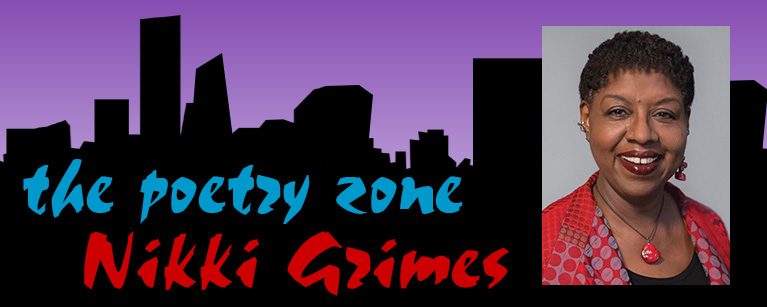Publish or Perish
A Short Guide for the Long Haul
I’d love to pocket a dollar every time someone asks me for the secret to getting published. Well, the secret is—there is none. Hard work and perserverance are the only keys to the kingdom.
If you’re serious about getting published, read on …
First of all, think broadly. Authoring a book is not the only way to get published. There are magazines, newspapers, literary journals. There are online collections, and more. Talk to your local librarian for ideas of where to start. Librarians are valuable, under-used resources. Use them! If your focus is poetry for children and/or young adults, talk specifically to a children’s librarian. You’d be amazed at how much help they can offer!

Hard Work
The hard work starts with the writing itself. No slap-dash manuscript, scribbled off the top of your head, is going to make it to the bookstore shelves. The work must be carefully thought out and finely honed. The idea, or its treatment, needs to be unique.
Research
How can you know your idea is unique? By researching the subject to see what’s already been written, and how. There’s no substitute for research. Hit the library, visit the bookstore, go online. See what’s out there. More importantly, read what’s out there. Once you have, you’ll be equipped to shape your manuscript into something unique, original.
What’s Next?
You have two choices.
1. Find an agent.
2. Research the book market. (There’s that dread “R” word again!)
Find an Agent
This may sound like an easy choice. Not necessarily. It can take years to find an agent who’s a good match for you. I’ve worked with four agents over the course of my career, and that career spans 28 years. Not all agents are equal, and it can take time for you to find one who knows the business, believes in your talent, and can represent you in a way you’re comfortable with.
Some agents are cantankerous, or pushy. Others are aggressive, but subtle. Some are ruthless, while others are more ethically inclined. Some accept whatever a publisher offers, while others routinely ask for more. You must keep in mind that your agent represents you in the marketplace. How they handle your business reflects on you. You need to be comfortable with that reflection.
There is something else you should consider. Is the agent a writer himself?Does he/she have a background in editing, or is marketing his only strength?Publishers rely on agents to weed out weak manuscripts, and help their clients prepare stronger ones. Having an agent with strong editing skills, or a good background in literature in general, can be very useful in this regard.
Where to Look
Literary Marketplace, a hefty volume you can find at your local library, lists agents. If you’re hoping to specialize in children’s literature, contact your regional Society of Children’s Book Writers and Illustrators (SCBWI). They’ll have a list of agents they can recommend. Contact several. Ask for the list of authors each represents. Then, contact a few to get a sense of how that agent works. This will help you determine whether an agent is right for you. Whether the agent of your choice chooses to work with you is another matter altogether. They will ask to see your work for consideration. That part of the process is out of your hands. But your job is to be prepared to ask for what you need when the right agent comes along. You might, for instance, want to know how often you can expect to hear from them, what percentage they charge, and precisely what they intend to do to earn it. Think of this process as a two-way interview. Remember, this is a marriage of sorts. Choose your partner carefully!
Researching the Market
Developing some savvy about the book market is not so much easier or harder than choosing an agent. It’s simply different.
For starters, you hit the literary bricks by studying which publishers are producing books similar in kind to the manuscript you wish to sell. Compile a list of likely suspects, then target them for your submissions. First, though, check Writer’s Market to learn which of those publishers accept unsolicited manuscripts. (The SCBWI newsletter offers the latest market updates in this regard for children’s book specialists.)
WhenI decided I wanted to explore children’s literature for possible publication, I spent two-and-one-half years reviewing books for a couple of book review services. In the process, Ideveloped a feel for who was publishing what. By the time I was ready to submit my own manuscript, I was able to do targeted submissions, and that’s what led to my first contract. No magic there!
Note:I’d refrain from submitting your work to more than one publisher at a time. Few publishers like multiple submissions. They want to feel that you have chosen them, just as you hope they will choose you!
Researching the Market
You will meet with rejection, so get used to the idea. No writer has ever avoided rejection, and neither will you. That said, you need to develop a thick skin. When (not if) your manuscript is sent back to you, turn right around and send it back out to the next publisher. Have an envelope already addressed and ready to go.
Perseverance
You will meet with rejection, so get used to the idea. No writer has ever avoided rejection, and neither will you. That said, you need to develop a thick skin. When (not if) your manuscript is sent back to you, turn right around and send it back out to the next publisher. Have an envelope already addressed and ready to go.
If at First You Don’t Succeed …
Getting published is a job. Treat it like one. Make sure your writing is up to par, package it professionally, and keep sending your work out until you get the “yes“you’re hoping for.
Your Life Story
Everyone I meet is anxious to share their life story. We all have one, after all. If you’re itching to share yours on the printed page, here’s a tip. Check your local community college. Many, like Riverside Community College, in my general area, offer how-to writing courses on the subject of personal history. Riverside’s is called “Writing Your Life Story,” and it is offered free of charge. Even if the course in your town charges a fee, chances are, it’s minimal. Besides, if you’re serious, you should be willing to make an investment to develop the skills you’ll need to set your story down on paper.
Once you’ve got your story down on paper, think about desk-top publishing it to share with your family and friends. What a special birthday, anniversary, or holiday gift that would be! It would also be a treasure to leave for the next generation of your family.
Can I Get a Witness: a Special Note to Christians
If you are a Christian with a powerful personal story to tell, but don’t know where to start, here’s my advice. First, get a copy of Sally Stuart’s Christian Writer’s Market Guide. Published by Waterbrook Press, it is a great reference tool, especially for new, or first-time writers. Second, visit christianwritersinfo.net, the website of Writers Information Network, an international Christian writers group based in Seattle, WA. They offer professional help, conferences, and marketing information useful to beginning writers.
Elaine Wright Colvin, WIN’s founder and director, was happy to pass on the link to their site. Feel free to use them as the wonderful resource they are!


